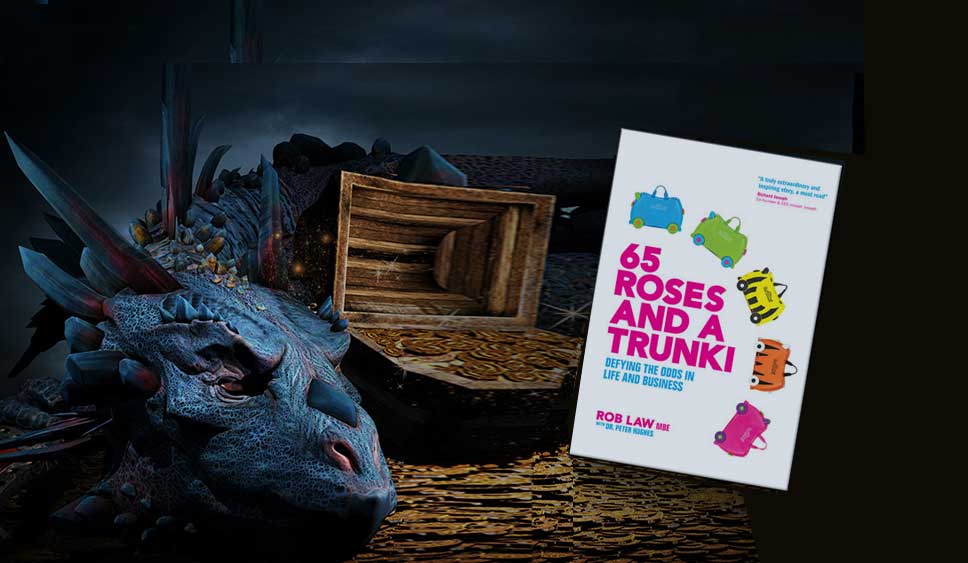In one of the most famous episodes of Dragons’ Den, Rob Law was humiliated by the Dragons after Theo Paphitis broke a strap hook on the Trunki ride-on suitcase.
Before Theo’s intervention, the Dragons were reacting positively to the product. After Theo’s intervention, they all turned on Rob. The following extract from his autobiography, 65 Roses and A Trunki, explores the psychology of this attack and explains why the Dragons became a troop of marauding chimpanzees;
In every area of our life, we have to remain vigilant, otherwise one or more of the many cognitive biases, hard-wired into the architecture of our brains, will infect the decisions we make. Trunki was just as cute, lovable and commercially viable after the strap hook popped asit was before. All that changed was the capacity of the Dragons to see the potential of the product stood before them. That is the price we all pay for letting prejudice dominate our thinking.
The other effect of Theo’s performance was to turn four of the fiveDragons (Richard Farleigh being the exception) into a pack. When Theo struck, they sensed blood and attacked. It reminded me of a documentary I watched about Jane Goodall and her discovery of the nature of chimpanzee aggression. In the mid-1970s, she recorded details of what became known as the Gombe Chimpanzee War between two rival troops. The fighting was relentless and coordinated, as one troop, the Kasekela, raided the territory of a neighbouring troop, the Kahama. One of the notable features of the raids was the tendency of the Kasekela chimps to attack isolated chimps from the Kahama and butcher them. Cyril Grueter, a primate researcher at the University of Western Australia, reviewed Goodall’s work andconcluded that ‘the costs of attacking a single chimpanzee are often negligible, thus promoting escalation of conflict’.This is exactly what happened in the Den. Outnumbered, four Dragons against one man and two Trunkis, Theo Paphitis started an assault that the other Dragons escalated. Everyone lost their judgement, including me.
My defence when Theo attacked the broken strap hook was pathetic. ‘I didn’t design it’ isn’t a defence. It’s an abdication of responsibility.I was like the business owner who absolves himself for a poor outcome by saying one of his managers made the key decision, forgetting or refusing to accept that he employed the manager and is, ultimately, accountable for every decision the business makes. I have never ducked responsibility like that before or since and I later ensured thatI designed every part of a Trunki. However, it didn’t matter whether I designed the strap hook or not. I owned the business so it was entirely my responsibility. That kind of misjudgement happens in the heat of battle, as I’m sure many chimps of the Kahama troop discovered to their cost.
What surprised me more, in hindsight, about the behaviour of the Dragons, was their inability to see the power of a branded product. PeterJones wrote off Trunki because it wasn’t patentable. Other Dragons nodded in agreement. However, the lack of a patent doesn’t in anyway affect the success of a product if it builds a strong brand in the consumer’s mind. From my own experience of taking a wide variety of pharmaceutical drugs, I convinced myself that Nurofen was a better product than ibuprofen, even though they’re identical. Again, that’s the power of branding. Perfumes provide a countless number of examples of non-patentable products that thrive because of effective branding.In fact, it’s much easier to copy a product than it is to replicate a brand. Once a brand is established in a given market, it can be very difficult to dislodge.
Watch our live webinar recording to discover the inside story of Rob’s appearance on Dragons’ Den and the way he overcame enormous obstacles including cystic fibrosis to build a global brand.





